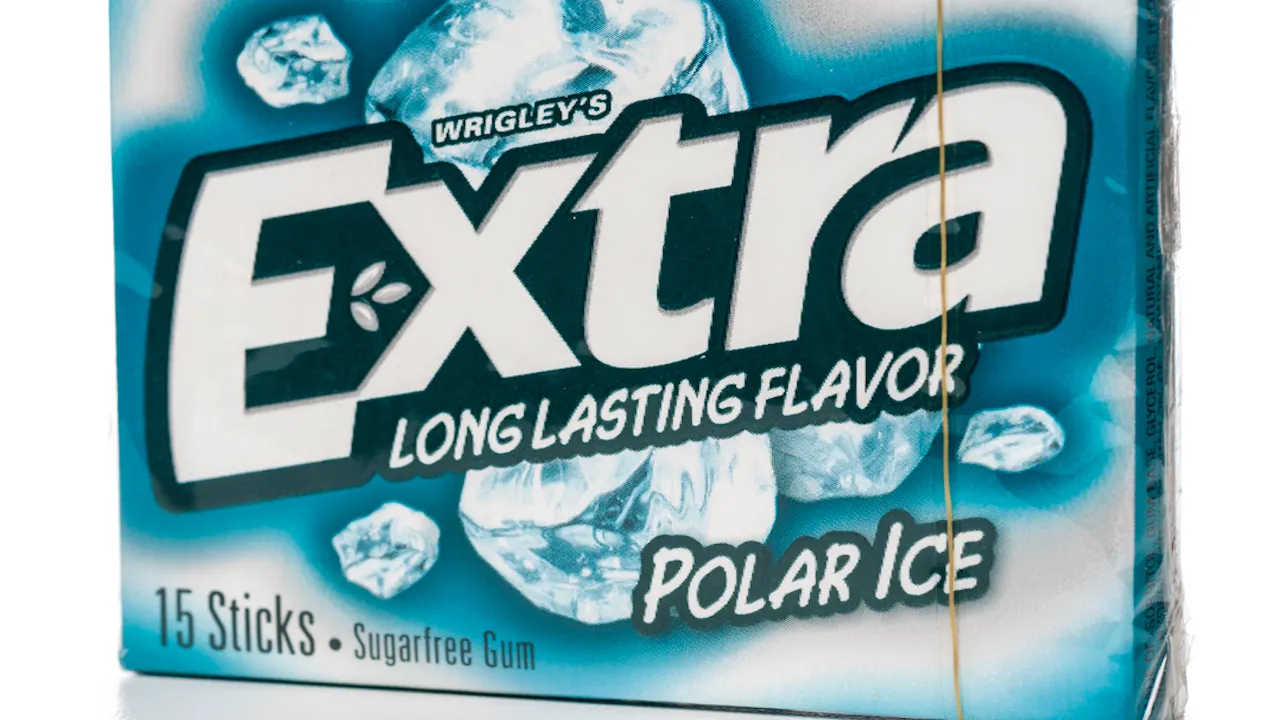Aspartame in chewing gum: Dental experts weigh in on the sweetener’s safety for teeth and gums
Despite the World Health Organization’s recent warning about it, aspartame doesn’t pose a cancer risk, the FDA and industry experts insist — but given that the artificial sweetener is used in many chewing gums and candies, does it pose any risk to the teeth and gums?
Chewing gum after meals is beneficial for the teeth because it increases saliva production, which helps to “dilute and neutralize acids produced by the bacteria in plaque on teeth,” according to the American Dental Association (ADA) website.
However, chewing gum that contains sugar can lead to cavities, potentially.
“Chewing sugar-free gum may, when added to a regular home oral care routine of twice-daily brushing with fluoridated toothpaste and daily cleaning between teeth, contribute to reducing caries (cavities) risk,” the ADA states.
ASPARTAME DEFENDED BY INDUSTRY EXPERTS AFTER CANCER RISK WARNING: ‘LIMITED EVIDENCE’
Even so, sugar-free gum could have some potential side effects. And there are healthier options that don’t contain aspartame, dental health experts told Fox News Digital.
Aspartame doesn’t cause dental decay as regular sugar does, noted Fatima Khan, a dentist and co-founder of Riven Oral Care in Houston, Texas.
“Regular sugar is fermentable and acts as a food source for cavity-causing bacteria,” she told Fox News Digital.
“However, artificial sugars like aspartame are not fermentable, and therefore cavity-causing bacteria cannot use them as a food source.”
Although aspartame itself doesn’t directly harm the teeth, some dentists warn that other ingredients in the gum could cause tooth decay.
Sugar-free chewing gum contains ingredients such as carbonic acid, phosphoric acid, malic acid, citric acid, tartaric acid and fumaric acid, all of which are found in various diet sodas, Khan said.
THESE ARE THE WORST DENTAL MISTAKES YOU CAN MAKE FOR YOUR TEETH
“All of these acids lower the pH in your mouth,” she said. “When your mouth’s pH falls below 5.5, your enamel demineralizes, the calcium and phosphate in your enamel weakens and breaks down, and your teeth erode.”
Tooth enamel helps to protect the teeth from dental decay, Khan said.
“The layer beneath, known as dentin, is less mineralized and more prone to decay due to its softer nature,” she added.
“Sugar and acid are two of the biggest culprits when it comes to tooth decay,” Dr. Sean Kutlay, a general dentist in Santa Clarita, California, confirmed to Fox News Digital.
“Any sugar-free gum is fine, as it stimulates more saliva, which helps to reduce the acidity of the mouth and prevent cavities, especially after a meal.”
While aspartame was recently deemed a possible carcinogen, Kutlay said the average person would need to ingest about 450 sticks of sugar-free gum to surpass the daily suggested limit.
AI HELPS DENTISTS CATCH MORE CAVITIES AND GUM DISEASE: IT’S ‘UNBIASED’ AND GIVES ‘MORE ACCURATE’ DIAGNOSES
“A stick of gum after each meal chewed for 10 to 15 minutes will provide so much benefit for your oral health,” he said.
Aspartame-containing gum can also cause potential digestive health issues, which can indirectly impact oral health, according to Dr. Nicole Mackie, a dentist at the Dental Implant Specialty Center in Las Vegas, Nevada.
“This is because excessive consumption of artificial sweeteners like aspartame may not be able to be processed in the gut, leading to bloating, diarrhea and fatigue,” she explained to Fox News Digital.

While aspartame doesn’t cause tooth decay or cavities, dentists recommend opting for xylitol, a naturally occurring sweetener found in plants, as a more beneficial sugar-free option.
“The reason xylitol is recommended is because cavity-causing bacteria cannot metabolize this sugar and use it as fuel, and it starves the cavity-causing bacteria and helps prevent tooth decay,” Khan said.
“It decreases cavity-causing bacteria, increases saliva production and helps remineralize teeth.”
CLICK HERE TO SIGN UP FOR OUR HEALTH NEWSLETTER
A 2021 study published in Clinical Oral Investigations found that chewing gum containing xylitol was shown to reduce plaque build-up on teeth.
Xylitol is an “excellent sweetener,” Kutlay agreed.
“In addition to sugar-free gum, it is also found in many toothpastes, mints and oral rinses aimed at reducing cavities and the bacteria that cause them,” he said.

In terms of caloric intake, xylitol contains less than half the calories of sugar, Khan said.
“Aspartame is 200 times sweeter than sugar, so the amount of aspartame needed in products is minimal, much less than xylitol and sugar,” Khan explained.
One downside to xylitol is that it can cause gastrointestinal issues, like gas and bloating, if consumed in large amounts, Khan warned.
The recommended daily intake of xylitol for dental cavity prevention is 6 to 10 grams, experts say.
Read the full article Here


